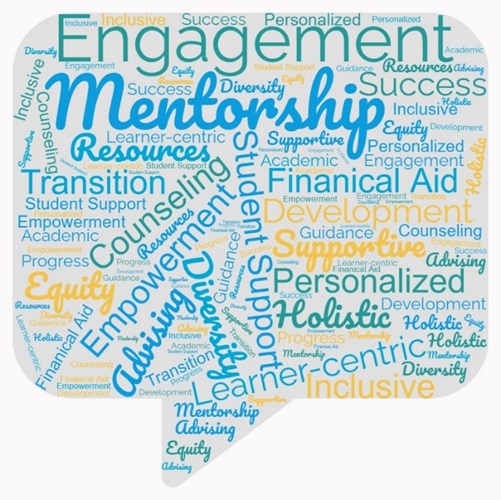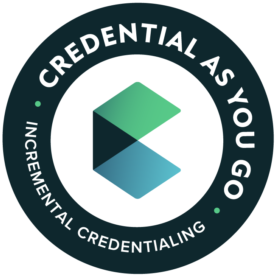 Learner support services are important in credentialing because they:
Learner support services are important in credentialing because they:
Credential providers can enhance the overall learning experience, promote student success, and address the diverse needs of their student population by incorporating support services.
These services often include a combination of the following:
Academic and Career Supports: Learners benefit from a variety of academic services that support skill development and contribute to their overall success, including:
Financial and Wraparound Supports: The growth of incremental credentials has brought with it a diverse set of learners with differing needs for financial assistance. Whether degree-seeking or not, these learners—often face financial challenges that traditional financial aid—a system geared toward full-time enrollment—can’t address. Yet there are other sources of funding, and learners need help to sort through these options. Financial support services may include:
Wraparound Supports: Learners who pursue incremental credentials are often adults who must juggle school, work and family obligations. They often are first-generation learners, or others who face significant barriers to success in their educational experience. All may require more holistic wraparound services, including:

Credential As You Go has acquired three phases of funding to date. Lumina Foundation funded Phase I, resulting in the Incremental Credential Framework for testing. The Institute of Education Sciences, U.S. Department of Education funds Phase II (Grant R305T210063), which focuses on rapid prototyping of and research on incremental credentials with a national campaign. An anonymous private donor fund at the Program on Skills, Credentials & Workforce Policy at George Washington University funds the development of the prototype Learn and Work Ecosystem Library. Walmart funds Phase III, which focuses on systems change for expansion and sustainability of incremental credentials. The opinions expressed are those of the authors and do not represent views of Lumina Foundation, Institute of Education Sciences, the U.S. Department of Education, Walmart, or George Washington University.